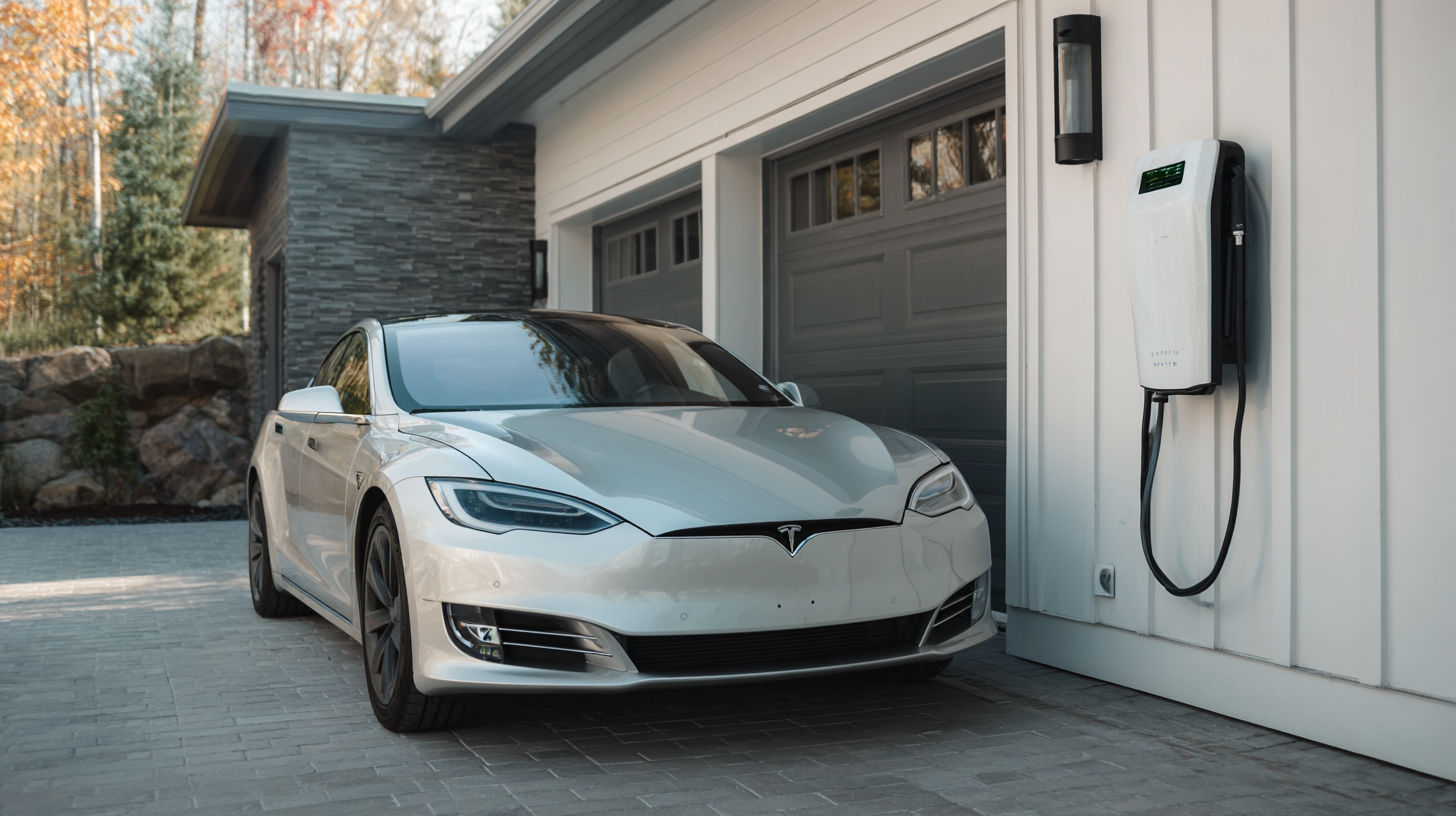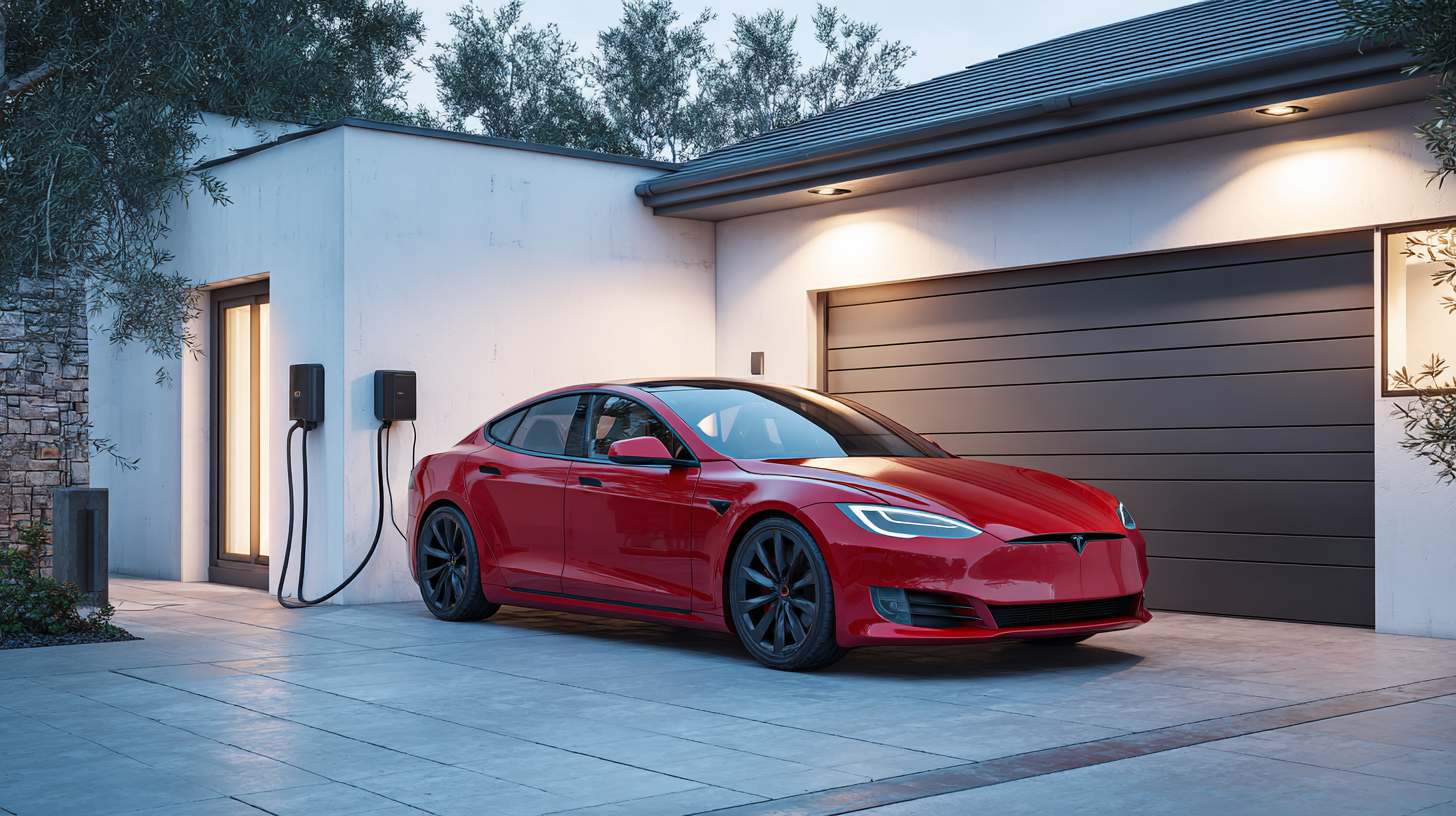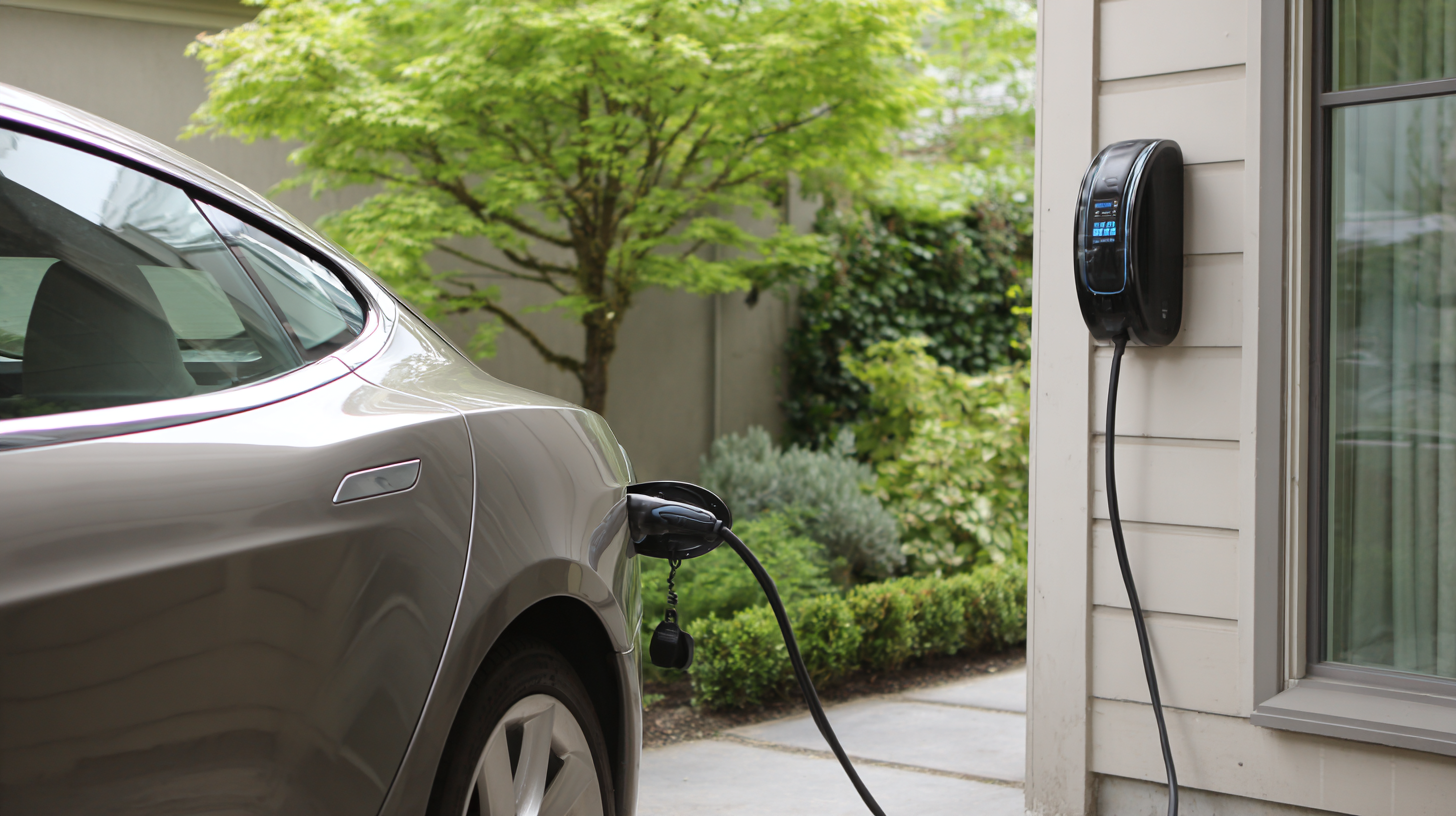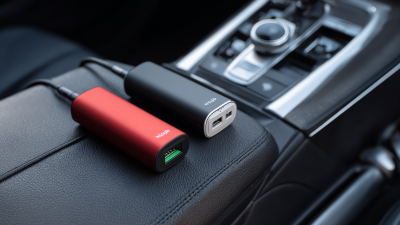
Wall Mounting EV Charge Station
5 Essential Tips for Choosing the Perfect Home Ev Charger
As the electric vehicle (EV) market continues to expand rapidly, with an estimated 145 million EVs expected to be on the road by 2030, the importance of a reliable and efficient Home EV Charger has surged. A recent report by the International Energy Agency (IEA) highlighted that home charging accounts for over 80% of all EV charging, underscoring the necessity for homeowners to invest in the right charger. Selecting the perfect Home EV Charger involves considering factors such as charging speed, compatibility, and installation requirements, which can greatly influence your EV ownership experience. This guide aims to equip you with five essential tips to navigate the complex landscape of home charging solutions, ensuring you make an informed decision for your electric vehicle needs.

Understanding Your Charging Needs: Assessing Vehicle Range and Daily Usage
When considering the installation of a home EV charger, understanding your charging needs is paramount. The first step is to assess your vehicle's range. Most electric vehicles today can travel anywhere from 150 to over 350 miles on a single charge. Evaluating how far you typically drive each day will help determine the battery capacity you need. For example, if your daily commute is around 30 miles, a standard Level 2 charger with a power output between 16 to 40 amps may suffice, allowing you to fully charge your vehicle overnight without any hassle.
Moreover, it's essential to consider your daily usage patterns. Take into account not only your commuting needs but also any long trips you may plan. If you frequently travel longer distances, it might be worth investing in a charger that supports faster charging capabilities, ensuring you can quickly replenish your vehicle's battery. Understanding these factors will not only help you choose the right charger but also maximize its efficiency, ensuring that your electric vehicle remains ready for both day-to-day activities and spontaneous road trips.

Evaluating Power Options: Level 1 vs. Level 2 Chargers Explained
When selecting an electric vehicle (EV) charger for home installation, understanding the differences between Level 1 and Level 2 chargers is crucial. Level 1 chargers utilize a standard 120-volt outlet and typically deliver around 4 to 5 miles of range per hour of charging. This option is suitable for EV owners who drive short distances daily or are able to plug in their vehicles overnight. According to a recent report from the Department of Energy, approximately 80% of EV owners opt for Level 1 charging due to its simplicity and cost-effectiveness.
Conversely, Level 2 chargers operate at 240 volts and significantly accelerate the charging process, providing about 25 miles of range per hour. This makes them an ideal choice for those with higher daily driving needs or for individuals who want to minimize downtime while charging. A study by the Electric Power Research Institute indicates that Level 2 chargers are increasingly becoming the preferred choice for homeowners, with a market growth projected to reach over $7 billion by 2025. The speed and efficiency of Level 2 chargers not only enhance the convenience of owning an EV but also contribute to reducing range anxiety, making them a worthy investment for many electric vehicle owners.
The Importance of Installation: Professional vs. DIY Approaches
When it comes to installing a home EV charger, one of the most critical decisions you'll face is choosing between a professional installation or a DIY approach. Professional installation offers several advantages, primarily safety and expertise. Certified electricians have the training and experience to ensure that the installation meets local electrical codes, minimizing the risk of hazards such as electrical fires or equipment malfunction. Furthermore, professionals can help you assess your home’s electrical system and recommend the best charger and placement, ensuring optimal performance.

On the other hand, the DIY route can be tempting for those looking to save money or enjoy a hands-on project. However, it’s essential to have a solid understanding of electrical systems before proceeding. Improper installation could not only void warranties on your EV charger but also lead to costly repairs down the line. Before committing to a DIY project, it's crucial to evaluate your own skill level and the complexity of the installation. In many cases, investing in professional installation might be the most prudent choice for long-term peace of mind and efficiency.
Budgeting for Your Charger: Cost Considerations and Long-term Savings
When considering the installation of a home EV charger, budgeting is key. The initial cost of the charger itself can range from $400 to $1,200, not including installation fees that can add an additional $200 to $1,000 depending on your home's electrical system. According to a report by the National Renewable Energy Laboratory (NREL), homeowners can expect to recuperate these costs through long-term savings, as owning an EV can lead to approximately $1,500 in savings on fuel per year compared to traditional vehicles.
Moreover, it’s essential to factor in potential energy savings. The U.S. Department of Energy indicates that charging an electric vehicle at home can cost between $0.10 and $0.30 per kilowatt-hour, significantly lower than gasoline prices, which currently average around $3.30 per gallon. Furthermore, with ongoing advancements in battery technology and charging efficiency, many EV owners report that these cost savings continue to grow over time. Making an informed choice about your EV charger can ensure substantial savings that outweigh the initial investment and contribute positively to your budget.
Future-Proofing Your EV Charger: Features to Look For and Adaptability
When it comes to selecting the perfect home EV charger, future-proofing should be a key consideration. As technology evolves, your charging solution must be adaptable to new innovations and requirements. Look for chargers that integrate with renewable energy sources like solar panels, allowing you to harness clean energy and reduce your electricity costs. Such features will not only enhance your home's efficiency but will also prepare you for potential changes in energy regulations and pricing.
Another crucial aspect is app-based controls. An intelligent charging system that allows remote management can offer insights into your charging habits and help you schedule charging times around off-peak electricity rates. This not only maximizes efficiency but also contributes to grid stability during peak demand. Additionally, consider the importance of security features. A future-ready charger should include safeguards against cyber threats, ensuring that your home and vehicle remain protected in an increasingly digital world.
5 Essential Tips for Choosing the Perfect Home EV Charger - Future-Proofing Your EV Charger: Features to Look For and Adaptability
| Feature | Description | Importance | Adaptability |
|---|---|---|---|
| Charging Speed | Look for chargers that offer both Level 2 and Level 3 charging options. | High charging speed reduces downtime. | Compatibility with future EV models. |
| Smart Features | Features like Wi-Fi connectivity and mobile app control. | Enhances user convenience and monitoring. | Potential for software updates and new functionalities. |
| Safety Features | Overcurrent protection, ground fault protection, and surge protection. | Ensures user and vehicle safety during charging. | Increases longevity and reliability of the charger. |
| Installation Flexibility | Options for both indoor and outdoor installation. | Adaptable to various home layouts and needs. | Supports a variety of EV models and charging standards. |
| Future-Proofing | Choose chargers that can handle future battery technologies. | Ensures continued utility as technologies evolve. | Compatible with potential future regulations and standards. |
Related Posts
-

Unleashing Innovation in Portable EV Chargers from China Quality Assurance for Global Buyers
-

7 Compelling Reasons to Choose Home Wall Ev Charge Station for Your Business
-

Noteworthy Variants of AC EV Charging Cables You Should Consider
-

7 Compelling Reasons to Choose an Ac Portable Ev Charger for Your Electric Vehicle
-

Embracing Innovation: The Future of EV Charger Stations for Sustainable Transportation
-

Unlocking the Advantages of Wall Ev Charge Station for Sustainable Energy Solutions

